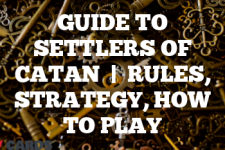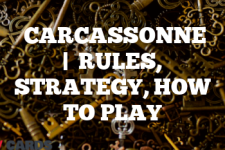Santorini: Mastering the Game of Gods and Builders – Unbeatable Strategy, Rules & Winning Instructions Guide
Introduction
This game, named after the beautiful Greek island, is a visually stunning and intellectually challenging board game that has captured the hearts of many players worldwide. Santorini is a game of strategy, where players take on the roles of Greek gods and goddesses, using their divine powers to build towers and outwit their opponents. The game was first published in 2004 by Gordon Hamilton, and it has since become a popular choice for both casual and competitive play.

The equipment needed to play Santorini includes a game board that represents the island, two sets of player pieces, and building blocks that are used to construct towers. Each player also has a card representing a Greek god or goddess, which grants them a unique power to use during the game.
Quick Tip
One key tip for winning at Santorini is to always keep an eye on your opponent’s moves and anticipate their strategy. This will allow you to effectively block their path and prevent them from reaching the top of a tower before you do.
Rules for Playing Santorini
The official rules for Santorini are straightforward and easy to understand. The game begins with each player placing their two worker pieces on the board. Players then take turns moving one of their workers and building a part of a tower in a neighboring space. The goal is to be the first player to move one of their workers to the third level of a tower.
However, there are also ‘house rules’ that can be introduced for variations of the game. For example, some players might choose to play without the use of god powers, or introduce a rule where players can only build towers on certain parts of the board.
How to Play Santorini
Setup
The game setup for Santorini is simple. The game board is placed in the center of the play area, and each player chooses a god card. The players then place their two worker pieces on the board, and the game begins.
Gameplay
On a player’s turn, they must move one of their workers to a neighboring space, and then build a part of a tower in a neighboring space. The workers can move up one level of a tower, move down any number of levels, or stay on the same level. They cannot move into a space with another worker or a completed tower.
End of the Game
The game ends when a player moves one of their workers to the third level of a tower. That player is then declared the winner. If no player can make a valid move, the game is a draw.
How to Win at Santorini
Winning at Santorini requires strategic planning and careful execution. Here are some strategies that can help you win the game:
- Use your god power wisely: Each god power provides a unique advantage, and using it effectively can greatly increase your chances of winning. For example, if you are playing as Athena, you can prevent your opponent from moving up a level on their next turn, effectively blocking their path to victory.
- Block your opponent: If your opponent is close to reaching the third level of a tower, move one of your workers to block their path. This can delay their progress and give you more time to reach the top first.
- Plan ahead: Always think a few moves ahead and consider the possible outcomes of your actions. This will allow you to anticipate your opponent’s moves and respond effectively.
Best Strategies for Playing Santorini
Here are some of the best strategies for playing Santorini:
- Control the center: The center of the board is a strategic location, as it allows you to reach more spaces and build more towers. Try to control the center early in the game to gain an advantage.
- Use your workers effectively: Each worker can be used to perform different tasks. For example, one worker can focus on building towers, while the other can block the opponent’s path. This can help you achieve your goal more efficiently.
- Choose your god power carefully: Each god power has its strengths and weaknesses. Choose a god power that suits your play style and strategy, and learn to use it effectively.
Scenarios for Santorini
Here are some common scenarios that you might encounter while playing Santorini, and how you can turn them to your advantage:
- Your opponent is close to reaching the third level of a tower: In this scenario, you should focus on blocking their path. Move one of your workers to a neighboring space and build a part of a tower to prevent them from moving up.
- You are surrounded by completed towers: If you find yourself surrounded by completed towers, use your god power to create a path for your workers. For example, if you are playing as Hermes, you can move your workers any number of spaces along the same level, allowing you to escape the encirclement.
- Your opponent is controlling the center: If your opponent is controlling the center of the board, try to disrupt their control by moving your workers into the center and building towers. This can force them to move their workers and give you control of the center.
Frequently Asked Questions about Playing Santorini
- Can I move my worker to a space with another worker?
No, you cannot move your worker to a space with another worker. - Can I build a part of a tower in a space with a worker?
No, you cannot build a part of a tower in a space with a worker. - Can I move my worker down more than one level?
Yes, your worker can move down any number of levels. - Can I choose not to use my god power?
Yes, using your god power is optional. - What happens if no player can make a valid move?
If no player can make a valid move, the game is a draw.
External Links
For more information about Santorini, visit the official game website here.

A digital native around since the early days of online gaming communities around 2001. An early contributor to the cult gaming site ClanTemplates, Adam has spent years giving free gaming resources to the community. With BoardCards, Adam is most experienced and commonly writing the articles on Strategy multi-player games like Settlers of Catan and Avalon. His first introduction to board games was via Mancala, an Egyptian-origin stone game and one of the oldest known games still played worldwide. Contact me via email



